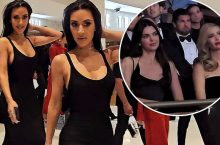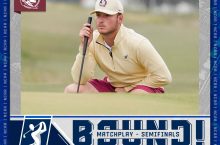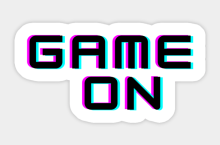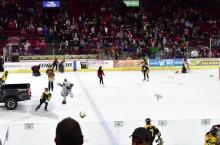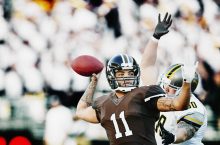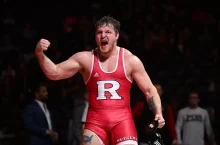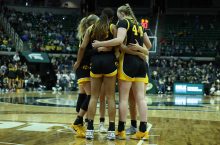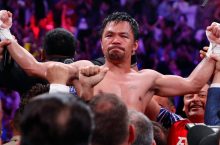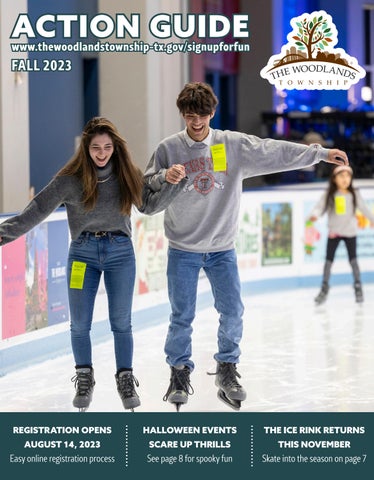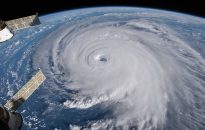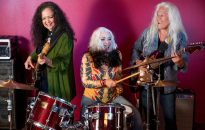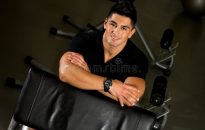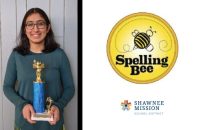From the Newsstands: This story appeared in The Eagle’s December 2024 print edition. You can find the digital version here. Every Friday afternoon, Kogod School of Business student Maxwell Brothers and College of Arts and Sciences student Benu Edwards, president and vice president of the American University Skateboarding Club, catch the bus to the Palisades […]


From the Newsstands: This story appeared in The Eagle’s December 2024 print edition. You can find the digital version here.
Every Friday afternoon, Kogod School of Business student Maxwell Brothers and College of Arts and Sciences student Benu Edwards, president and vice president of the American
University Skateboarding Club, catch the bus to the Palisades Recreation Center with their club members, for their weekly skate sessions. At the park, they’ve built a skate community while working on their skills and tricks.
Both Brothers and Edwards have been skating for many years, and each bring lots of experience to the club. The leadership’s favorite tricks? Brothers flexes a backside slappy 50-50, specifically on a yellow curb. Edwards loves to perfect his backside 180.
The club first started in the spring of 2022 when Brothers transferred to the University. At the time there was a small skateboarding community at the University, but there wasn’t an official club yet, which gave Brothers and Takumi Sajino, a senior in School of International Services, the idea to start one.
“I didn’t really make many friends at first, except for skateboarding. I was just meeting people on campus, seeing them with the board. It was like, ‘Oh cool, someone I can talk to.’ And then a professor I had, Juan Antonio Montecino, an economics professor also skates, so he became our faculty advisor,” Brothers said.
Since its creation, the skateboarding club has grown at a healthy pace. The club started with just two members but has since grown to 45. It’s been an official club on campus for two years now, making it one of the University’s newer clubs, according to Edwards. The membership growth and official club status have given them access to University resources that support their club and members.
One thing that both Brothers and Edwards are proud of is that they are a teaching club. Every other Sunday, they host their “eduskate” events where anyone from the community is welcome — regardless of their skill level — to learn the basics of skateboarding. They have experienced members there dedicated to teaching beginners to get them started. If someone doesn’t own a board, the club has a spare to borrow.
Although they understand that skating can seem daunting to some, they didn’t sugarcoat the difficulty of learning the basics. However, Brothers and Edwards emphasized that once someone gets invested and committed, it’s very fun and rewarding. They challenge people to give skateboarding a try.
The leadership duo is also trying their best to create a strong community within the club.
“I want the club to be a strong home base for skaters because you come to college, and you’ve got all this life stuff going on. Skating is a way that people are able to feel at home. They’re able
to get out their energy. They’re able to make friends,” Edwards said. “It means so much for so many people. I just want somebody that’s coming from Kentucky that’s got no friends here that’s like, ‘Yeah, I don’t know what I’m majoring in.’ But they’ve got skateboarding. And I want them to
be able to see that. I feel like that would be awesome. It’s about building a community.”
As the club strives to be a strong home base for skaters, they are also hoping to find a designated space on campus where they can Before the construction of the Meltzer Center started, skaters on campus used the old outdoor basketball and tennis courts as a space to practice. Since the court was demolished, they have nowhere on campus where they are allowed to skateboard.
Both Brothers and Edwards agreed that skateboarding cannot only be categorized as a sport or as an art form. For them, it’s simultaneously a sport and an art form, giving skaters an outlet for competition and culture. They want their members to engage in all forms of skating, whether they’re playing competitive games with each other or connecting over skate culture.
Brothers believed that introducing skateboarding into the Olympics solidified its standing as a sport. He also mentioned other groups like X Games and Red Bull, who also host other competitions for skaters. Though there is the sport element in it, Brothers emphasized the importance of expression for skaters as well.
“We all have our own influences that make us want to skate a certain way,” Brothers said. “People have a style that we look up to, that we try to emulate or learn from, or a selection of tricks that we think is really badass, and we want to adopt ourselves. And everyone has their own taste, just like with music or art. So that’s why it falls into an artistic discipline as much as it falls into an athletic discipline because there is a physical and a creative and spiritual component too.”
Brothers and Edwards encourage interested students to follow the club on Instagram, and to join the club on Engage AU. Soon, they are hoping to host many different events open to anyone interested, such as a barbecue and skate-themed movie night.
“I can see that the club will live on. I have faith in my brethren. So that’s a good thing, but at the same time, while I’m here, my work’s not done. I’m trying to build with the help of the whole club and the [executive board], you know. Build the strongest foundation for the club, so it becomes an institution just like any other club on campus because they didn’t exist before we came here. So it’s leaving a legacy in a way,” Edwards said.
Editor’s note: Maxwell Brothers, president of the American University Skateboarding Club, is a staff writer for El Águila. He was not involved in the pitching, writing or editing of this article.
This article was edited by Penelope Jennings, Delaney Hoke and Abigail Turner. Copy editing done by Luna Jinks, Emma Brown, Ella Rousseau, Ariana Kavoossi, Sabine Kanter-Huchting and Nicole Kariuki.


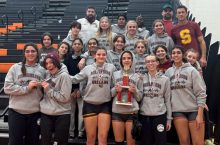
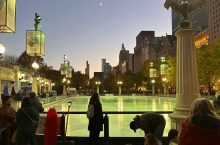
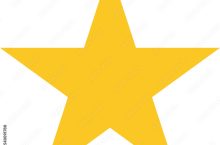
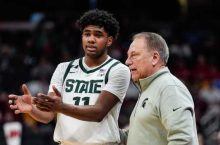








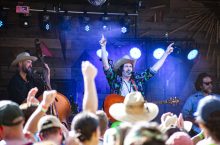
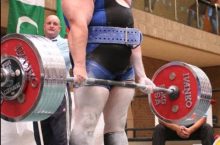

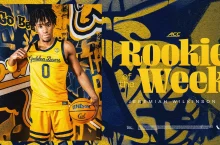
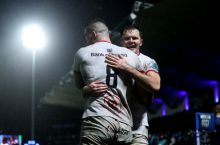


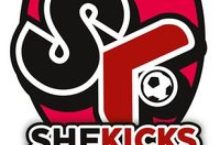

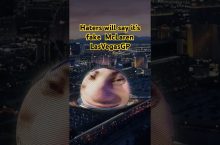
 #McLaren #F1 #Gingerbread #CapCu…
#McLaren #F1 #Gingerbread #CapCu…
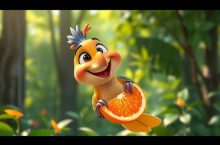
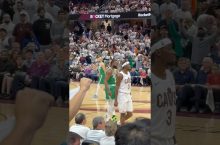
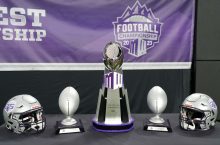

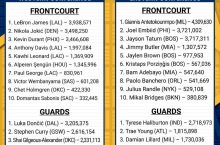
 #NBA #basketball #NBAXmas #Jalen…
#NBA #basketball #NBAXmas #Jalen…
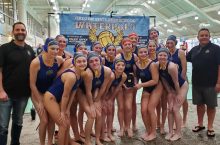

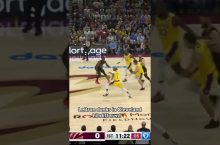
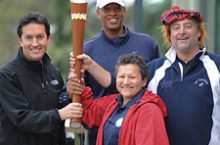
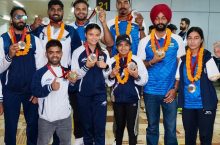
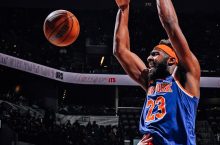
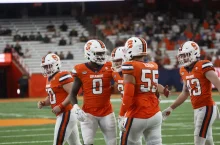

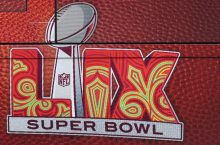

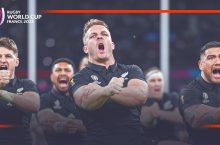
 #rugby #haka
#rugby #haka